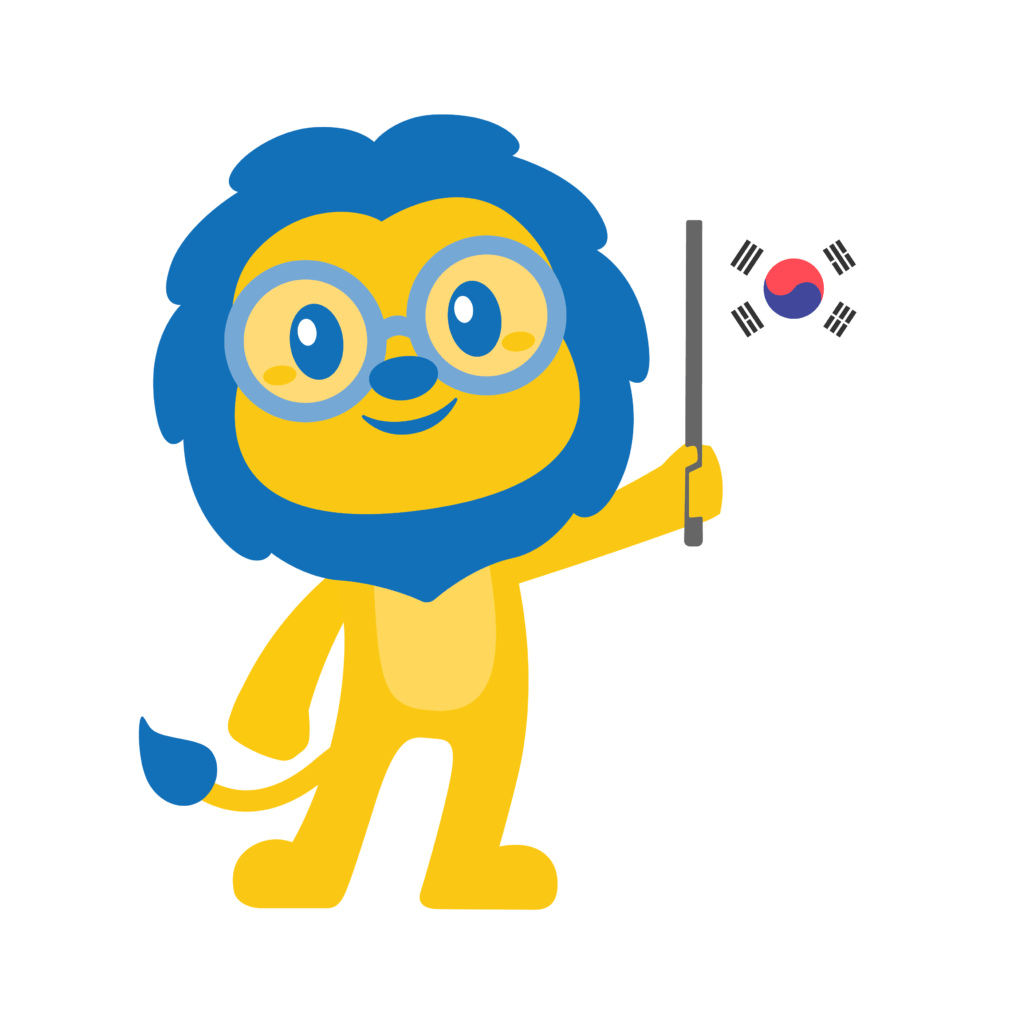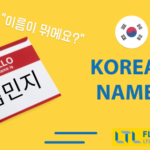Squid Game Cultural References // Hidden Meanings and Symbolism
Squid Game Hidden Cultural Meanings

Welcome to a very special blog article about Squid Game Cultural References.
If you haven’t seen the Korean series yet, where have you been?!
Squid Game was the cultural phenomenon of 2021 – a Netflix show that seemed to come out of nowhere, yet took over the cultural zeitgeist in a storm.
It was all over the news and social media and a popular topic for discussion around the water cooler.
Do note, if you haven’t seen Squid Game yet… there will be some SPOILERS in this article.
Squid Game was a global hit, proving you don’t have to be fluent in Korean in order to appreciate a Korean show.
That being said, fluency in Korean gives you an extra level of understanding.
There are certain nuances that can only be caught by a Korean speaker – subtle jokes or meaningful symbolism that may be lost on a non-native audience.
We’ve compiled a list of some of the fun or hidden meanings and other Squid Game cultural references down below.
Again, be warned – there are slight spoilers ahead. Nothing that extensive, but we can’t talk about special meanings without referencing the events from the show!
Squid Game | The Games
Squid Game | Episodes Titles
Squid Game | Characters Names
Squid Game | Korean Honourifics
Squid Game | FAQ’s
In Korean ‘Squid Game’ is 오징어 게임 [ojingeo geim]
Squid Game Cultural References | The Games
#1 | Red Light, Green Light
The first game is “Red Light, Green Light”.
Players must move forward when the phrase “red light” is chanted, and stop when “green light” is chanted.
However, this isn’t the name for the game in Korean at all!
In Korean, this game is called 무궁화 꽃이 피었습니다 [mugunghwa kkochi piotsseumnida], which can be translated to “the mugunghwa flower has bloomed.”
The mugunghwa, known in the English as the hibiscus syriacus or the Rose of Sharon, is the national flower of South Korea and a common motif in Korean literature.
Unlike “Red Light, Green Light,” the players for this game are supposed to move forward when the chant is being said, then stop during the pauses of silence when the chant is finished.
If you ever watch this scene again, listen closely for “무궁화 꽃이 피었습니다” [mugunghwa kkochi piotsseumnida].
#2 | Dalgona
The second game is picking a shape out of a honeycomb toffee.
In Korea, this particular sweet is known as 달고나 [dalgona].
Other important words to know are 설탕 [seoltang], which means “sugar,” and 뽑기 [bbobgi], which means “picking.”
So in Squid Game, this game is called 달고나 뽑기 [dalgona bbobgi] and 설탕 뽑기 [seoltang bbobgi].
These translate into “picking dalgona” or “picking sugar,” in reference to picking out the shapes from the sugary dalgona sweet.

35 Korean Dramas on Netflix for Newcomers
We made a list of 30+ Korean dramas on Netflix to watch in 2021, so if you’re just starting your Kdrama adventure, you’ll know where to start.
#3 | Tug Of War
The third game in the series was the tug-of-war.
In Korean this game is called 줄다리기 [juldarigi].
The word 줄 [jul] means rope, while 다리기 [darigi] is the act of pressing or straightening something, used almost always in the context of ironing clothes.
#4 | Marbles
The fourth game was marbles.
In Korean this game is called 구슬치기 [guseulchigi].
Let’s break down this word down into two parts.
- Firstly, 구슬 [guseul] means “marbles,” though it can also mean “beads”
- The second part 치기 [chigi] means “hitting”
So if we put both parts together, 구슬치기 [guseulchigi] translates into “hitting marbles”.


#5 | Glass Tiles Game
The fifth game was the glass tiles game, in which players had to hop across a glass panel bridge.
In Korean, this game is called 징검다리 건너기 [jinggomdari gonnogi].
The word 징검다리 [jingeomdari] means “stepping-stones bridge,” while 건너기 [gonnogi] means “crossing over.”
So put together, 징검다리 건너기 [jinggomdari gonnogi] means “crossing over the stepping-stones bridge.”
#6 | Squid Game
Last but not least – the grand finale. The squid game.
In Korean the game is called 오징어 게임 [ojingeo geim].
The first word 오징어 [ojingeo] means “squid,” while the second word 게임 [geim] is simply a Korean pronunciation of the word “game.”
Easy, right?

170+ Animals in Korean 🐙 The Ultimate Guide for All The Animals!
From Cat to Butterfly, Koala, Crocodile and Sparrow, find out the names of 170+ animals in Korean in this fantastic vocabulary guide. PLUS flashcards!
Squid Game Cultural References | The Titles
In Squid Game, most of the episode titles have been directly translated into English, but a few in particular deserve a deeper look.
The first episode in Squid Game is called “Red Light, Green Light.” Or at least, that’s the English title.
The Korean title is 무궁화 꽃이 피던 날 [mugunghwa kkochi pidon nal], which translates into “the day the mugunghwa flower bloomed,” which is a reference to the actual Korean name of the game.
The sixth episode in Squid Game is titled “Gganbu”, and it’s the only English episode title that matches its Korean equivalent.
In the show, 깐부 [gganbu] is described as a truly close friend who shares everything with you.
This is actually an obscure and outdated word in Korean, which is why the elderly character in the show has to explain it to his younger compatriot.
This shows a generational gap between the two characters.
The ninth and last episode of Squid Game is titled “One Lucky Day.”
It’s a fairly accurate translation of the Korean title, which is 운수 좋은 날 [unsu joeun nal], though this phrase can also be translated as “a lucky day” or “a day of good fortune.”
This is meant to be ironic, given what happens in the episode.
However, Koreans may have already guessed what happens based on the episode title alone.
That’s because it’s a literary reference.
운수 좋은 날 [unsu joeun nal] is a famous short story in Korea, in which the main character has a remarkably lucky day at work, earning a great deal of money to care for his sickly wife, only to come home and find his wife had already passed away.
As we have seen, similar events unfold within the episode.

14 of the Best Korean Streaming Platforms 🍿
Where to watch Korean dramas? That is definitely a question we all asked ourselves! We listed 12 of the best Korean streaming platforms for you.
Squid Game References | The Characters Names
In Squid Game, the female lead is named Kang Saebyeok, spelt as 강새벽 in Korean.
Other characters remark on how pretty her name is.
In Korean, 강 [Kang] means “river,” while 새벽 [Saebyeok] means “dawn.”
So this character’s name can be translated to “river dawn” or “dawn on a river.” It is indeed a pretty name – no wonder the other characters have kind words to say about it.
Saebyeok also has a younger brother named Kang Cheol, spelt 강철 in Korean.
Kang is the family surname he shares with Saebyeok, while Cheol is his personal name.

This can mean “strong iron” or “steel.”
One can imagine that their parents had poetic thoughts when it came to naming their children.
Another female character in Squid Game is named Han Minyeo 한미녀.
Han Minyeo is a brash woman who doesn’t hesitate to change sides or backstab people to gain advantage.
Her name can be translated as “a beauty” or “Korean beauty.”
Another character snidely comments that her name does not suit her – a cruel dig against her looks.
Lastly, there is an elderly man named Oh Ilnam 오일남.
While his surname is 오 [Oh], his personal name can be broken down into 일 [il], which means “one,” and 남 [nam], which means “man.”
In other words, his name 오일남 means “one man” or “man one.”
This is his assigned position as a player, but it also foreshadows his role as the number one man in charge of all the games.
BONUS | Want to discover more about how names in Korea work? Check out our complete guide to Korean names here.

Korean Names // What are the Naming Customs in Korea?
Korean names are usually composed of three characters, but do you know about their meanings? What about generation names and clans? Follow our guide.
Korean Honourifics Used in Squid Game
Honourifics in Korean are hard to translate, especially as many of these concepts don’t exist in English.
It seems that Netflix chose to skip over most of these honourifics in the subtitles, which is a valid translation choice, but that does mean that a certain level of nuance was lost in the translation.
Here’s a look at some of the honorific titles that were used in Squid Game.
In Squid Game, the main character is Gi-hun, a former factory worker, while his childhood friend is Sang-woo, a failed businessman and SNU graduate.
If you listen closely, you’ll notice that Sang-woo never calls Gi-hun by his actual name.
Instead, Sang-woo calls Gi-hun by the Korean title of 형 [hyung], the literal translation of which means “big brother.”
However, they’re not actually brothers.
That’s because 형 [hyung] is a title that can be used for older male friends and relatives.
Using this title is meant to show that Gi-hun is an old friend of his who played the role of big brother during their youth.
In the show, there’s also a couple of gang members who are led by an unsavoury character named Deok-su.
The gang members call Deoksu 형님 [hyung-nim]. This is taking 형 [hyung] and adding the honorary suffix 님 [nim].
Adding 님 [nim] elevates the original title and makes it even more respectful than it originally was.
It shows the gang members having a certain amount of respect to this character, although amusingly enough, they drop this form of address when they turn on him.

Meanwhile, the character of Han Min-yeo uses the title 오빠 [oppa] to ingratiate herself with Deok-su.
오빠 [oppa] means “big brother” in Korean, but while 형 [hyung] is used by males, 오빠 [oppa] is the form of address used by females.
Similarly, the title of 오빠 [oppa] is not always used for older brothers but also for older male friends and relatives who might fill a brotherly role.
오빠 [oppa] is also used by women to indicate closeness with an older man, such as with a boyfriend or husband.
The character of Ali refers to Sang-woo as 사장님 [sajang-nim], which is often translated as the owner, boss, or president of a company, though it can be used flexibly as a general term of respect.
As the two characters grow closer, Sang-woo tells Ali that he can use the more intimate 형 [hyung], which indicates that Sang-woo has taken on a more brotherly role with Ali.
Lastly, the main character Gi-hun addresses the elderly Oh Il-nam by 영감님 [yeonggam-nim].
영감님 [yeonggam-nim] is very hard to translate, but it can be thought of as a respectful, slightly old-fashioned title for an elderly man.
This shows that our main character, for all his flaws, is a polite person who shows a special respect and consideration for a vulnerable character.
This doesn’t cover every single instance of honourifics used in Squid Game, but you should now understand the gist of it.
Honourifics play an important role in the Korean language, often revealing the personality or relationships of characters.

10 Common Korean Curse Words 🤬 Speak Like a Native
There’s no better way to speak like a native to use a swear word or two. The Korean language is no exception, check out 10 Korean Curse Words to learn.
So what did you think of Squid Game? Did you enjoy it or was it overhyped?
Did you like our Squid Game cultural references? We hope we managed to teach you a few new things about one of the most popular Netflix shows ever streamed.
Let us know your thoughts to these questions in the comments below.
If you enjoyed Squid Game and it’s got you wanting to learn Korean, you came to the perfect place…
Squid Game Cultural References – FAQ’s
What is Squid Game?
Squid Game was the cultural phenomenon of 2021 – a Netflix show that seemed to come out of nowhere to take the world by storm!
This Korean show of nine episodes tells the story of a group of people risking their lives in dangerous, and murderous, games in an attempt to win an incredibly large sum of money.
When will Squid Game season 2 be released?
On June 12th 2022, Netflix announced that the season 2 of Squid Game was officially confirmed.
We don’t have a date yet, but you can check out Netflix’s official announcement for more details.
Where to watch Kdramas for free?
Free platforms offering high quality videos and subtitles are becoming increasingly rare!
You can try out these platforms to watch K-dramas for free: YouTube, Asian Crush, iflix, KBS1, KBS2, Peacock TV, Viki Rakuten, VIU, and WeTV.
Tubi and OnDemandKorea are also popular platforms, but are only available in the US.
NOTE – On some of these streaming platforms you will only have a few episodes available!
Check out these Korean Streaming Platforms for more options.
How do you say Squid Game in Korean?
Squid Game in Korean is 오징어 게임 [ojingeo geim].
What are the games’ Korean names in Squid Game?
The Korean names in Squid Game are:
#1 | Red Light, Green Light – 무궁화 꽃이 피었습니다 [mugunghwa kkochi piotsseumnida]
#2 | Dalgona – 달고나 뽑기 [dalgona bbobgi] and 설탕 뽑기 [seoltang bbobgi]
#3 | Tug Of War – 줄다리기 [juldarigi]
#4 | Marbles – 구슬치기 [guseulchigi]
#5 | Glass Tiles Game – 징검다리 건너기 [jinggomdari gonnogi]
#6 | Squid Game – 오징어 게임 [ojingeo geim]
Where can I watch Squid Game?
Squid Game is available to watch on Netflix.
When was Squid Game released?
Squid Game was released on Netflix in 2021.
Want More From LTL?
FANCY LEARNING KOREAN? Check out our online Korean courses here.
We offer a 7-day free trial to all online students where you can study Korean 24/7.
Want to study Korean in Korea instead? Our Korean courses in Seoul can either be taken in small groups of no more than 5 students or individually for a more tailored experience.
We even offer incredible homestay experiences in Seoul too.
To top it all off, it certainly doesn’t end with Korean. Check out the other languages we teach 👇🏻









